Ivan Petkov
Have you heard the joke that God created the earth and man in seven days and everything else was made in China? China is an interesting and controversial country from all points of view. It combines ancient traditions with modern technologies, communist government with purely capitalist forms of economic development. In recent years, we have associated it with unprecedented economic growth, but also with unbearable working conditions and suicides in large technology companies. China is open to the world in its own way – it produces and exports large quantities of goods but, at the same time, it lives a distinctive and largely isolated life. The presence of a state firewall, which filters the access to the world wide web, along with the specifics of the language, determine the somewhat closed nature of the cyber culture, which is a continuation of the lifestyle in modern China. Can you imagine the size of domestic consumption and technological development in this Asian country?
For technology fans, Hugo Barra is an emblematic name. Until recently, he was vice president of Google and was responsible for the development of the Android mobile operating system. Sometime last year, he moved from Google to the Chinese smartphone company Xiaomi, which is called the "Chinese Apple". We remember that, according to the media, the reason for this dramatic and unexpected move for many was a love story with a bad ending. Since there is no way to be sure of this, we will put aside this curious and juicy detail. Instead, we are going to use Hugo’s impressions as a kind of guide through contemporary Chinese society and its technological habits. He has collected impressions since he has moved to China and, as he admits, he writes them down in a diary.
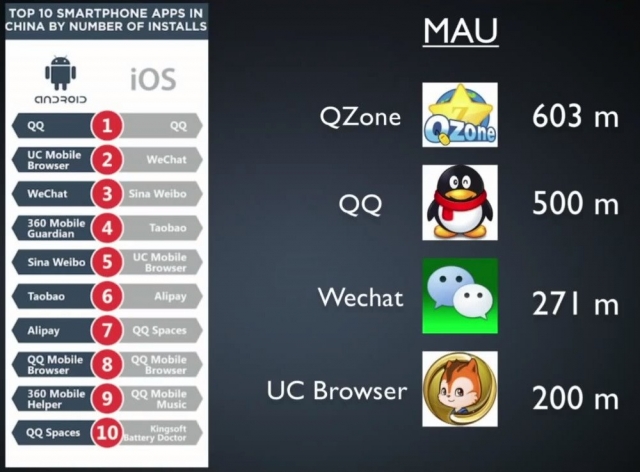
Photos: Hugo Barra
Let us start with some figures. How many users of different services are we talking about? There are 600 million Internet users, and their number has increased by 50% over the past three years, and more than 500 million smartphone users whose number has doubled over the past 6 months. Chinese society is highly consumerist and, as we know, the government there takes adequate measures to allow domestic consumption to cool down the overheated economy without slowing down the pace of growth. It has succeeded for the time being and the disposable income of the population has increased 3 times over the past eight years. According to official figures, China has 122 billionaires but their number is rapidly increasing in view of the rapid economic development and the emergence of new companies.
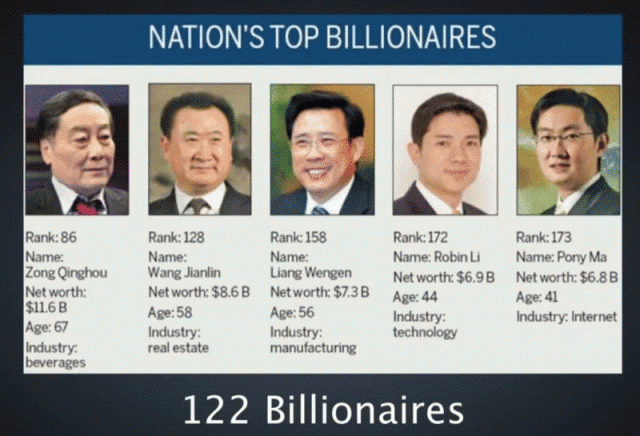
The fact that the ten most popular mobile applications in China are of local origin is not due to the language barrier alone. The most popular social network in the country, QZone, is also Chinese. We should mention that Facebook is banned in China because the information uploaded on the most popular global social network is not subject to control and the Chinese government does not approve of this. The equivalent of Facebook, QZone, has 603 million active monthly users. This is just over half the number of Facebook users. QQ is a chat application that has 500 million active monthly users; Wechat is similar to WhatsApp and has 271 million users.
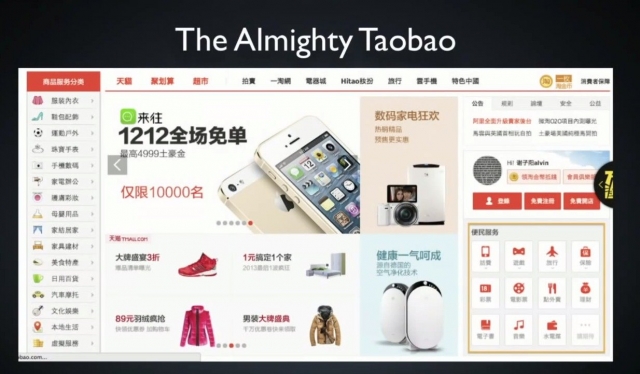
E-commerce in China is flourishing. The largest and most popular site is Taobao, part of the world's largest e-commerce company, the giant Alibaba. The West is represented by Yahoo, which holds about 25% of the company. Taobao is a record-holder in terms of offers and sales. The e-shop is more than twice as big as eBay and Amazon combined. The revenue it generated in 2013 amounted to 160 billion dollars. The site offers products in every price and quality range. In addition to the numerous items offered, users can pay household bills, buy cinema tickets, airline tickets, manage their personal finances and perform many other activities. The site offers literally everything that is present as a commodity on the market.

An example of the specificity of the Chinese market is the phenomenon called "Singles Day". This is the opposite of the celebration of St. Valentine's Day and instead of buying a gift to a loved one, one buys a gift for oneself because one is single, thus celebrating the fact that they are single, or rather trying to reduce or fill this gap by shopping. It seems ominous that, in the state with the largest population in the world, which is literally overpopulated and where there is no room for privacy, there are single people. Has the consumerist nature of society alienated people from each other in their fight for more money with which to purchase items? However, let us go back to the facts. By comparison, the biggest online sales in the U.S., known as "Cyber Monday" registered $2 billion in turnover. During the "Singles Day" the Chinese spent $5.75 billion and the amount of the purchases made via mobile phones was $900 million.
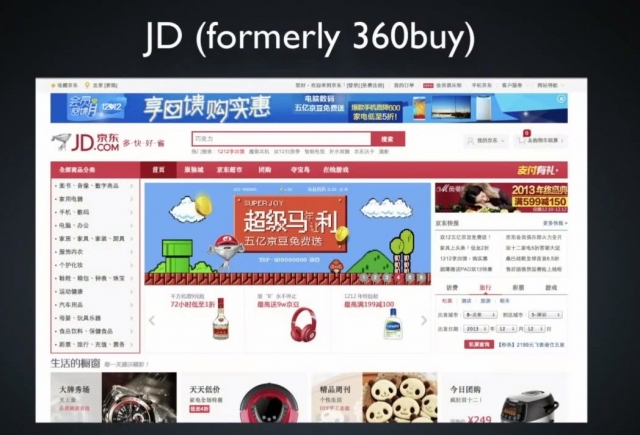
The second largest e-commerce site JD.com specializes in fast delivery. All orders will be delivered within 24 hours! However, that is not all as the website also offers delivery at night, especially after office hours and completes within 3 hours. Amazon has recently presented their robot suppliers, flying drones, to improve the speed of delivery. JD, however, uses a much more personalized approach. Couriers who use electric bicycles make the final delivery. In order to build a strong relationship with customers, the courier is always the same, so that the customer and courier know each other.
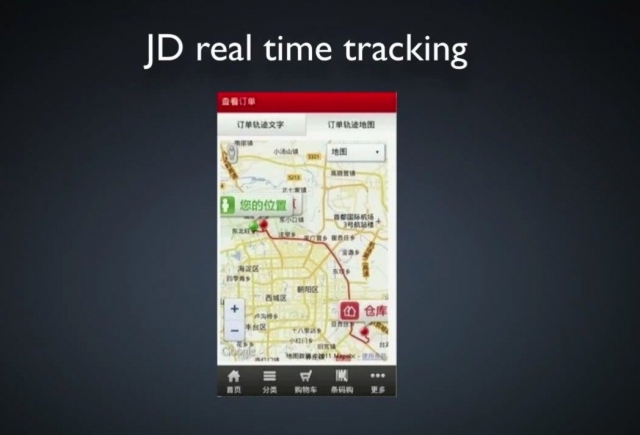
The site offers the opportunity to track the movement of the cyclist - courier in real time and thus the customer is informed as to where the delivery is and when he or she will receive it.
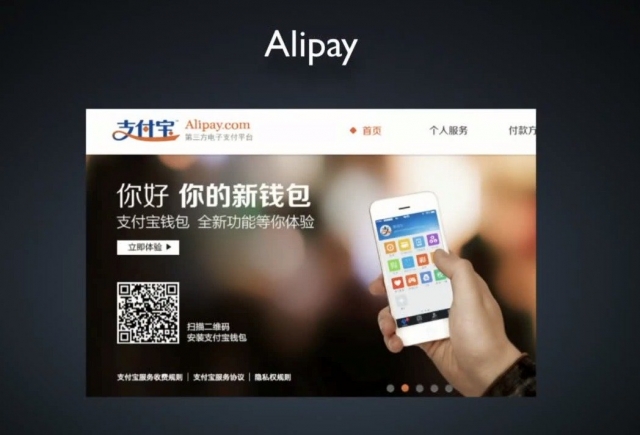
Alipay is the equivalent of PayPal, and 50% of all transactions in the country are made via this service. The figures here are impressive too: Alipay leaves PayPal behind as its annual volume of transactions exceeds $1 trillion. The service is not only for online payments. In Beijing, you can pay the taxi driver through it.
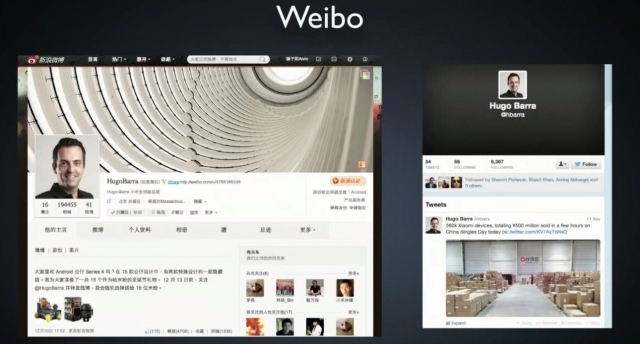
Weibo is the most popular micro blogging service in China. Hugo states that the accumulation of 42,000 followers in Google + took him several years and much effort. After registering in Weibo and being a foreigner who writes in English, he had 200,000 followers within two months. At the time of writing this article, he has 377,289 followers on Weibo ... and their number is growing. The dimensions are really different and impressive.
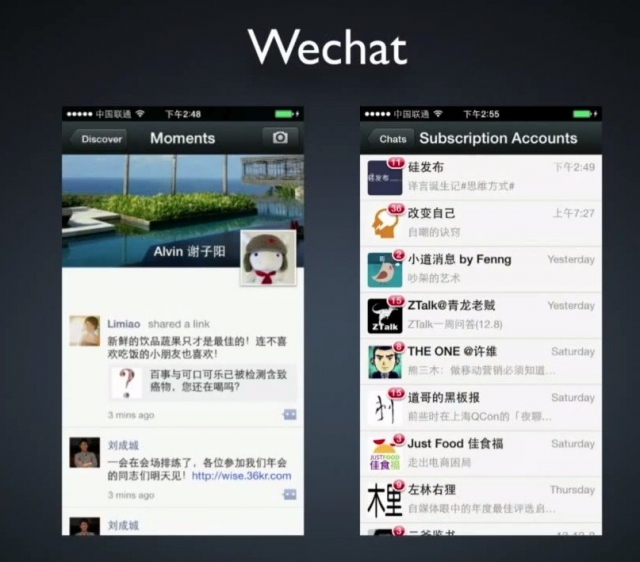
Wechat, which we have already mentioned, is a service through which you can organize your social life. The application successfully replaces e-mails and SMS as forms of communication and is about to overtake traditional chat services. Wechat has functionality similar to Instagram. It has the form of a social network too as it creates channels of celebrities or popular brands and allows subscription to them. The application offers integration with Alipay and it may be used for direct shopping from the channels of different brands. For example, you can order food for home. Xiaomi, the company for which Hugo is working, sold 150,000 phones via Wechat within just 10 minutes! Wechat is a huge platform for advertising. Hugo describes an advertising campaign of a worldwide manufacturer of condoms on its channel of the application. In rainy weather, the company shows images of a young man who uses its products to protect ... his feet from the water by putting them on his sneakers. We can imagine how this atypical use of the product has increased its sales! Wechat has serious ambitions for global presence and has hired "Barcelona" superstar Lionel Messi as the face of 15 markets in Asia.
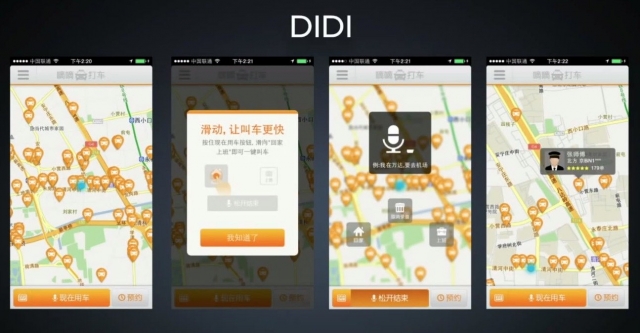
DIDI is another interesting service that offers not only navigation but also routes with different characteristics. It is used both by tourists and by taxi drivers as a way to align the final destination of the client as you can often find yourself at a place that is totally different from the desired destination. Taxi drivers in China often buy smartphones just to use this service, as it is very difficult to find the addresses, even for the Chinese themselves.
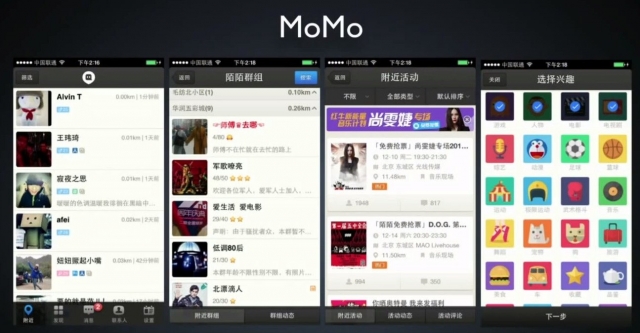
We talked about single people and here is an application, MoMo, which can overcome this problem, at least partially. Via this service, you can talk to strangers around you. The so-called "blind dating" is very popular in China. Through this and similar applications, people try to use the technology to socialize. The topic is long and has many facets, so we cannot give a definite answer as to whether technology improves our ability to communicate or further reduces it.
I hope you liked this brief tour guided by Hugo Barra despite his absence. I also hope that, at least slightly, it has raised the curtain and showed the use of technology in China in terms of communication, e-commerce, entertainment, and all this via mobile devices anywhere and at any time.